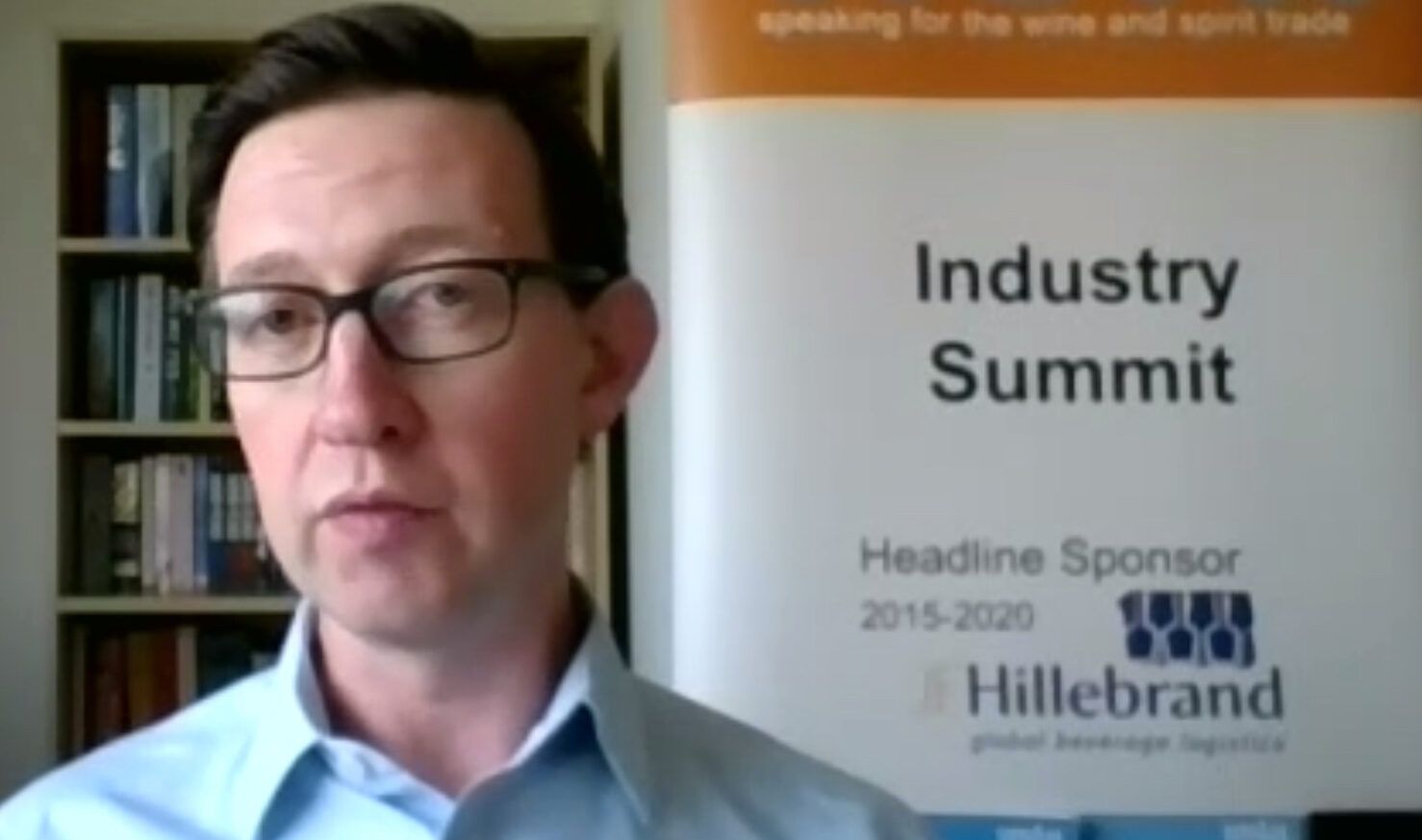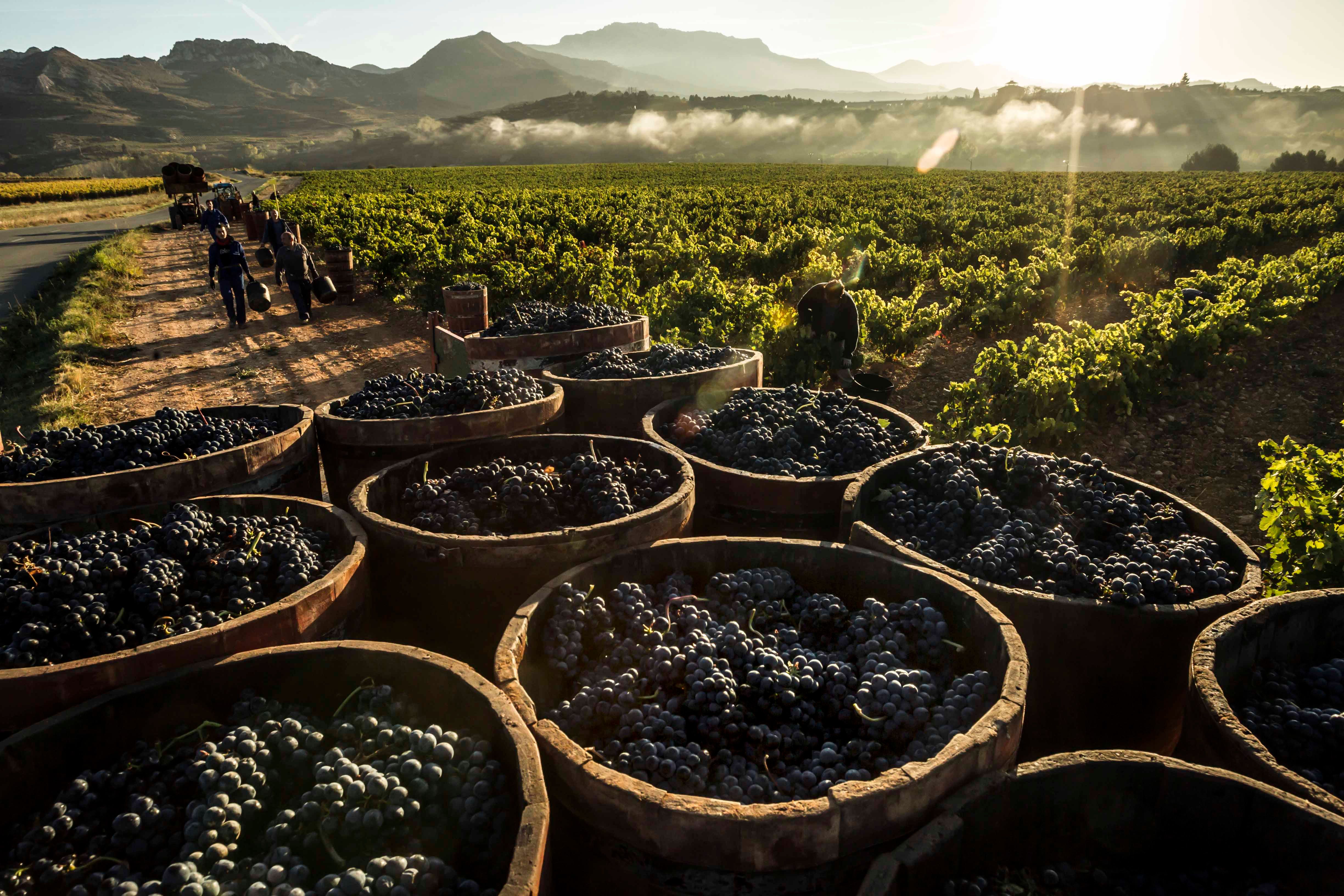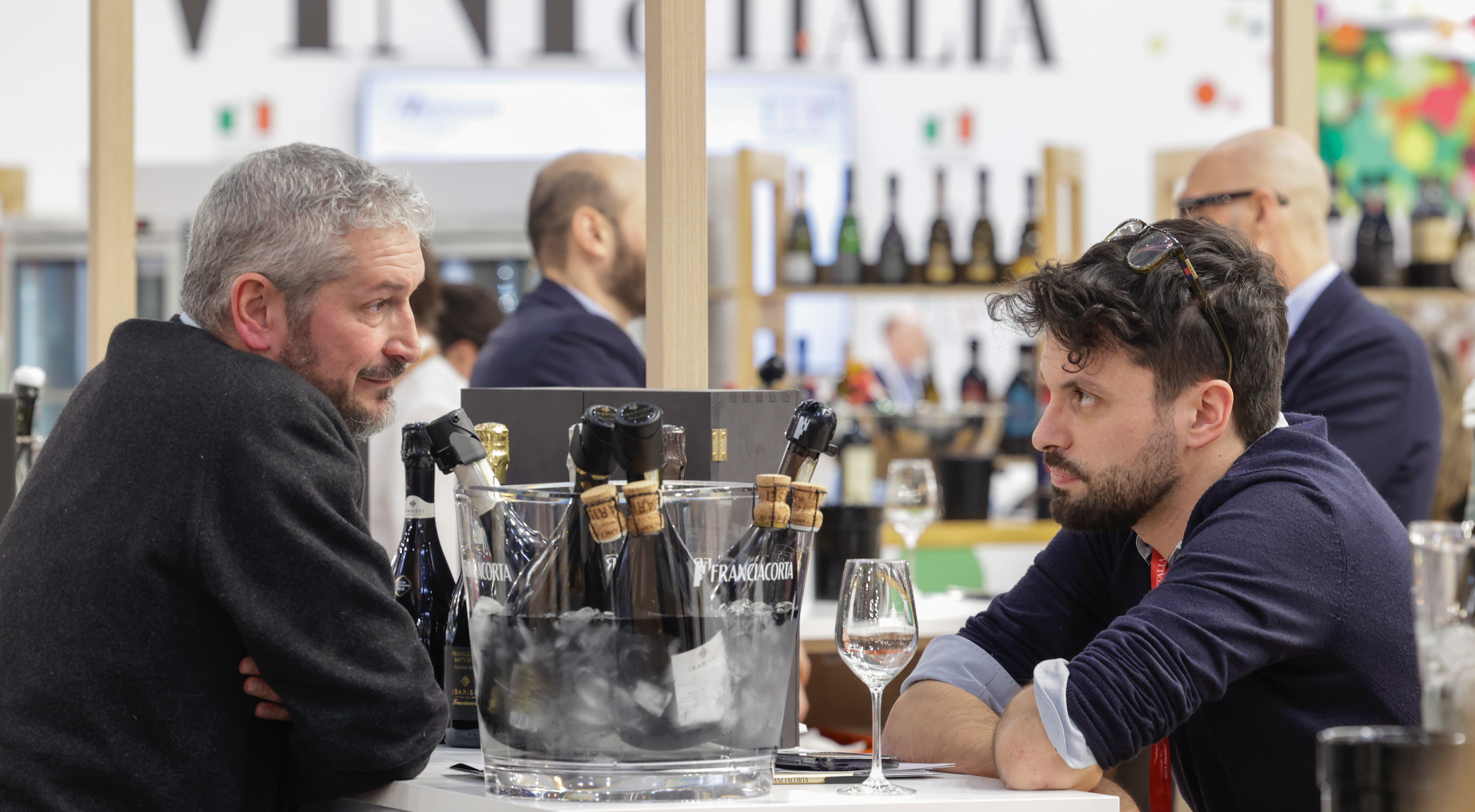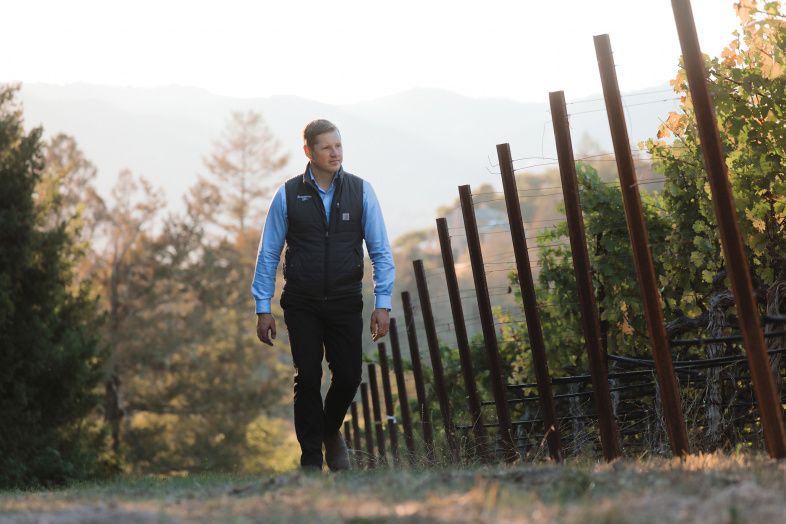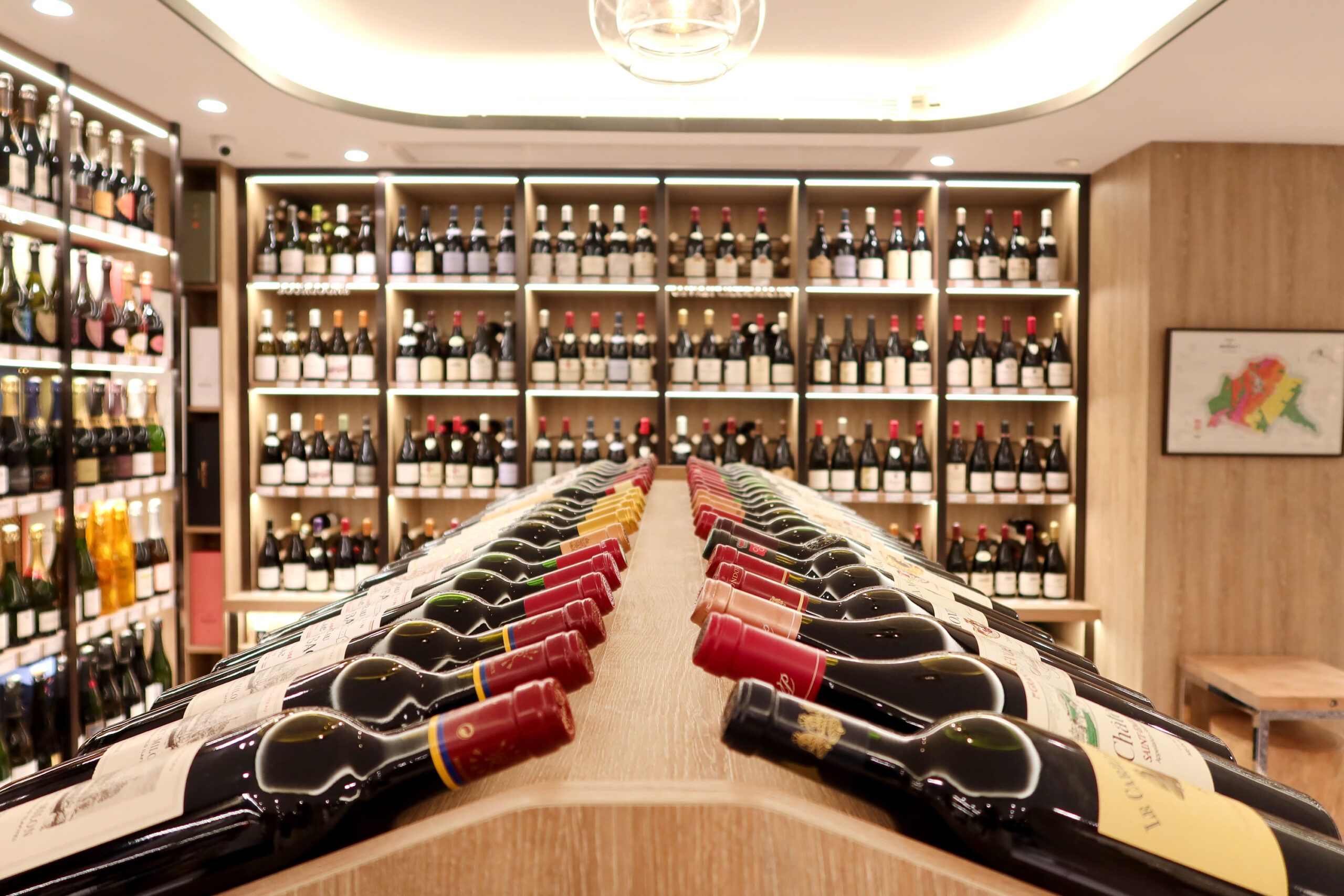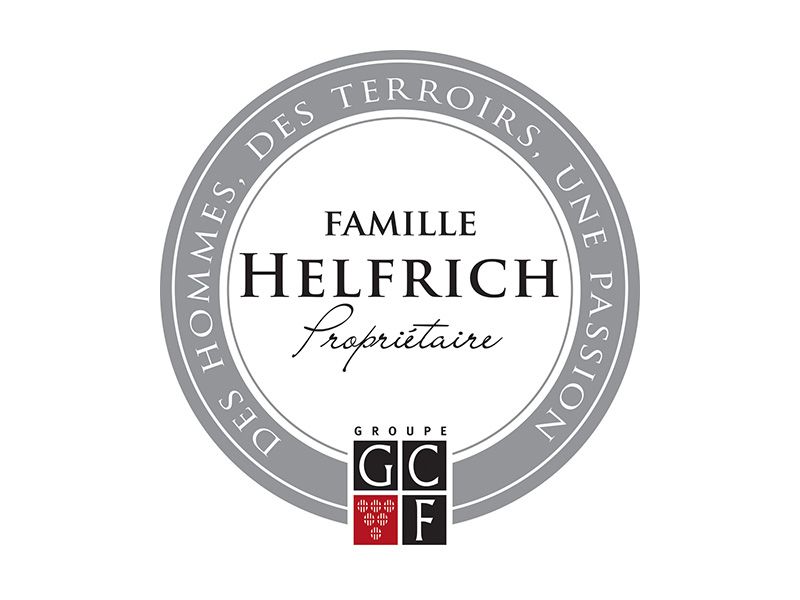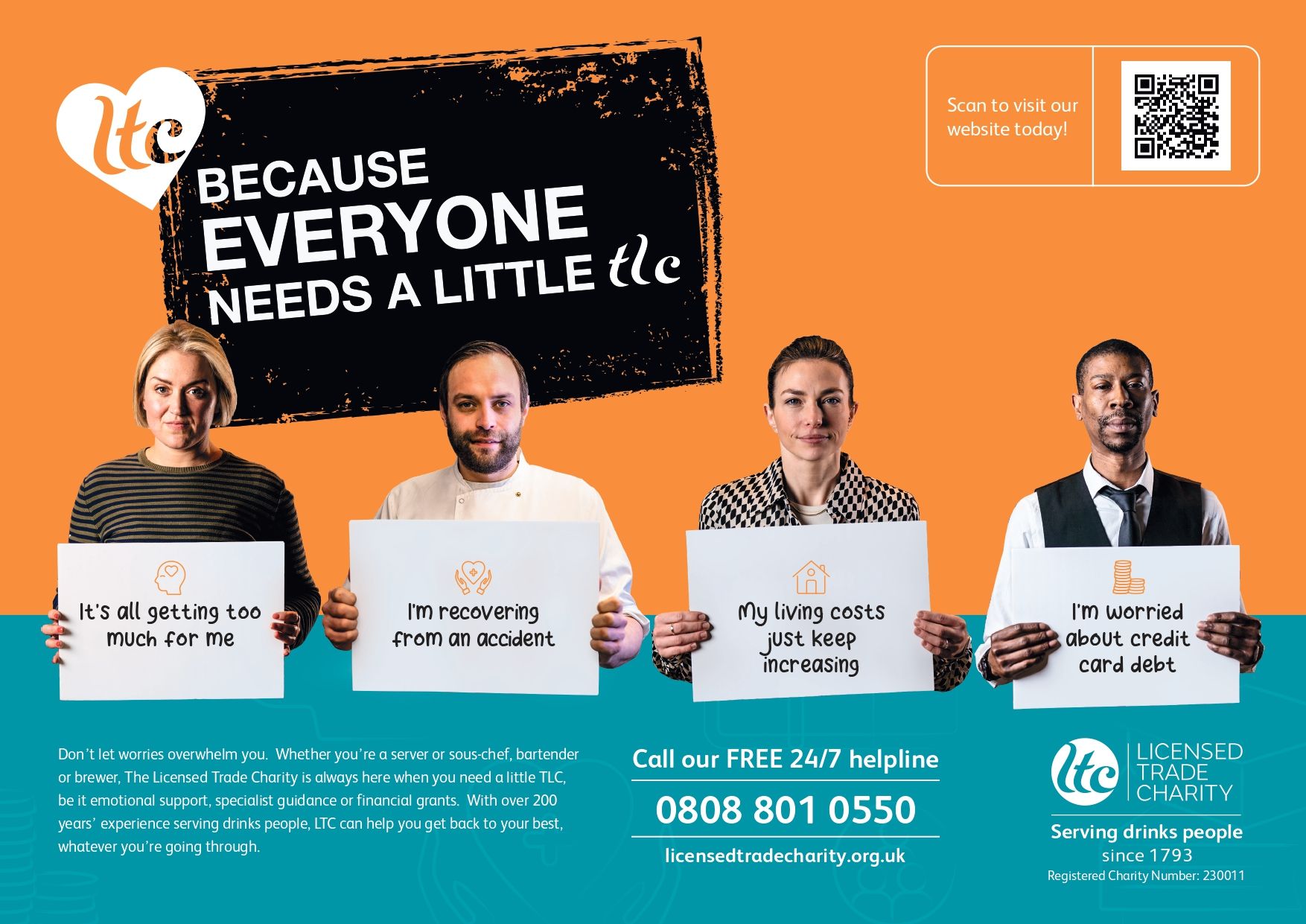The WSTA’s Miles Beale was not afraid to give the government’s track record on negotiating a credible Brexit deal a good kicking this week. Here are the highlights from a no holds barred speech.
“Not good enough”; “Beggars belief”; “Woeful lack of understanding”; “It does not have to be like this”.
These are just some of the cutting remarks that the WSTA’s Miles Beale used this week to describe what he sees as the government’s pitiful attempts (not his exact words) to organise a Brexit deal, let alone prepare UK business for the changes that lie ahead.
His recent invitation to join the Agri-Food Trade Advisory Group has certainly not dampened his mood to attack the government on the areas in which he believes it is seriously letting down the drinks sectors he and the WSTA represent. In particular, he pointed to the fact that less than five months before January 1 when the UK formally leaves the EU, not only is there no trading deal on the table, but what we do know are steps and measures that go out of their way to damage the UK wine industry in particular.
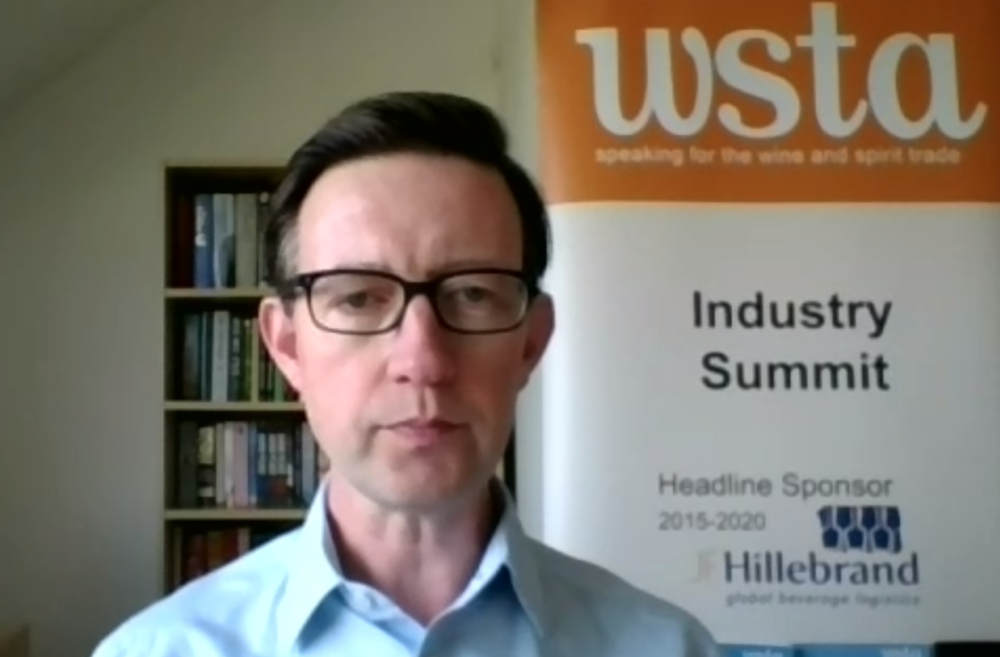
Miles Beale talking to the drinks industry via Zoom this week as part of the WSTA Summit that continues today and tomorrow with sessions and panels online
Seismic shift
We’re on the edge, he saids, of a “seismic shift” in the way we trade with the EU, but there is still no clear “path” as to how it that is going to be done. All of which, he adds, is frankly “not good enough”.
“It took until the summer for government to acknowledge there would be export declarations for goods leaving the UK and import declarations for goods entering. This beggars belief. This close to January 1 we should be testing the new regime now, not waiting on the detail,” he said.
Which brings us to the infamous VI-1 forms that the government in its wisdom wants to voluntarily introduce that means any EU wine producer selling wine to the UK will have to fill in one for every consignment of wine they want to sell. What’s more they will need to carry out a laboratory test, costing £100s each, before being given the go ahead to complete the transaction.
The WSTA estimates the new forms will add at least 10p to the price of a single bottle of wine, cost the UK wine industry at least £700m to comply with, result in an extra 500,000 forms to be processed, and mean smaller wine producers that rely on dealing direct with independent merchants and importers in the UK will be priced out of working in the UK.
It could potentially deprive hundreds of small independent wine businesses – both retailers and importers – the chance to effectively do business with the producers they want to work with.
As Beale explained: “We have yet to see the latest version of the detail set out in the Border Operating Model.”
“A Horlicks of things…”
In a separate session during yesterday’s WSTA summit Lord Holmes of Richmond, who helped run a trial with the HMRC to see how effective blockchain technology could be in the global wine supply chain, said the use of V1-1 forms would be the equivalent of going back to the stone age – or in this case “paper age” – where the technology was there to “transform border controls” and make international markets like wine the driving force in what is known as the ‘fourth industrial revolution’.
Instead the government was at risk of “making a Horlicks” of the whole thing by insisting the sector goes back to paper filling and complex forms that need to be checked by hand at ports, said Lord Holmes.
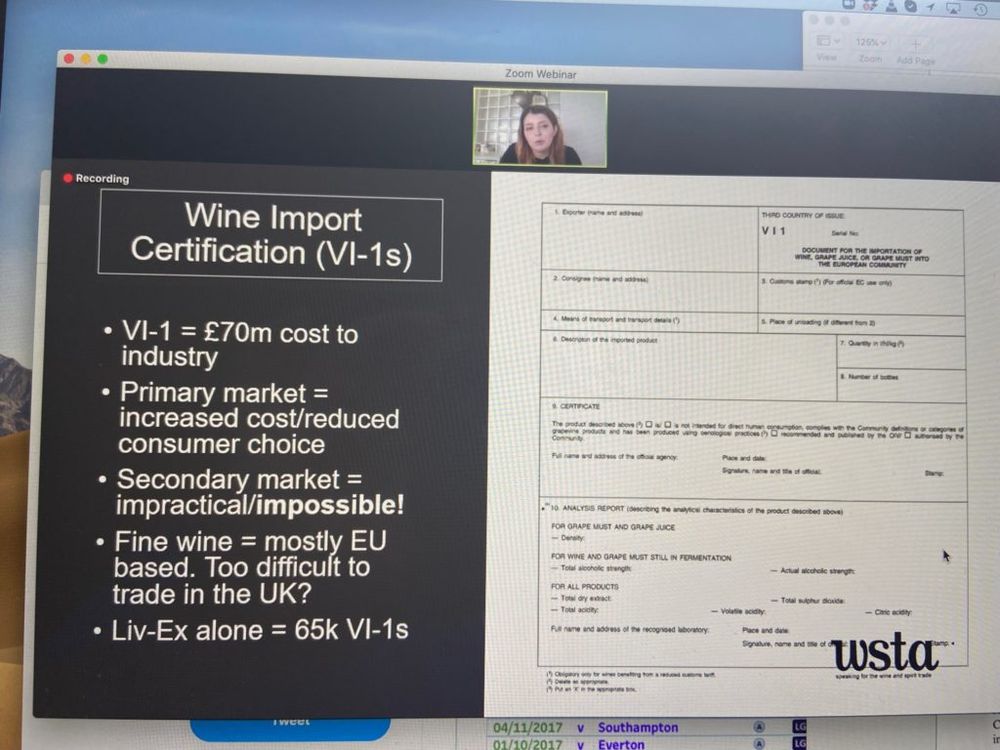
Read it and weep: the dreaded V1-1 form that the government wants to introduce that the wine industry claims will cost millions of pounds to implement and restrict smaller producers from exporting wines to the UK
Not good enough
Now most of Whitehall might be closed, with civil servants working from home, but that does not excuse the fact that not one government minister has had the “decency” to agree to a face to face meeting with the WSTA to explain why they believe the Vi-1 forms make sense, claimed Beale.
“We are still waiting on details of how goods are going to move between GB and Northern Ireland. This isn’t good enough and shows a woeful lack of understanding of the time businesses need to introduce new systems or revise labels.”
He added: “We still don’t know whether it’s going to be possible to design a wine label that can be used in the UK and EU despite us giving the UK government a workable solution months ago.”
There are still hopes that compromises can be made and Beale has certainly not given up on the WSTA’s lobbying attempts to get the government to see sense.
The big hope is a report into the viability – or not – of VI-1 forms that an All Party Parliamentary group is set to publish in the coming weeks. It’s hoped its findings, which Beale is confident will side with the frustrations of the wine industry, will at least raise the parliamentary pressure and force ministers to publicly defend their record and explain any benefits they think the V1-1 forms bring. But, he conceded, he is not confident the VI-1 forms will go away.
Arguably the best case scenario is to make the case to suspend the VI-1 forms and spend the time to develop an electronic system that the WSTA agrees is needed in order to facilitate a mutual recognition system of which some sort of compromised VI-1 form might be part of.
What’s particularly frustrating, stressed Beale, is that none of this needs to happen. The proposed VI-1 forms have nothing to do with the EU and been devised by the UK government. It’s in their own power to withdraw them.
Beale also repeated the ‘body blows” that await the fine wine world if VI-1 forms are needed, with the threat of small parcels of fine wine being opened up at ports. Importers will need to deal in less than 100 litres of wine at a time in order to bypass the proposed rules, said Beale.

The sight of lorries stuck in miles of queues at ports either side of the Channel are becoming increasingly likely if we end up with a no deal, said Miles Beale
Dangers ahead
You don’t need to look too far into a crystal ball to see what consequences lie ahead if a Brexit deal is not negotiated by the end of October.
Michael Saunders, chairman of the WSTA and managing director of Bibendum, likened the situation as “standing on the edge of a precipice and looking over”. But it’s been a long wait, he added, and we’re arguably no further forward or clearer about what is going to happen than we were four years ago after the referendum vote.
It’s vital, said Beale, that importers and retailers work with their producer partners to get as much wine this side of the Channel before January 1, and not get caught up with what all haulier and logistics companies are warning will be huge delays and lorry parks at UK ports well into January 2021.
He says the chances of a no deal Brexit must now be over 50% and he urged all drinks companies to plan with a no deal in mind. That does not make it any easier mind and he remains “extremely worried” about what a no deal could bring for the drinks industry.
Budget fears
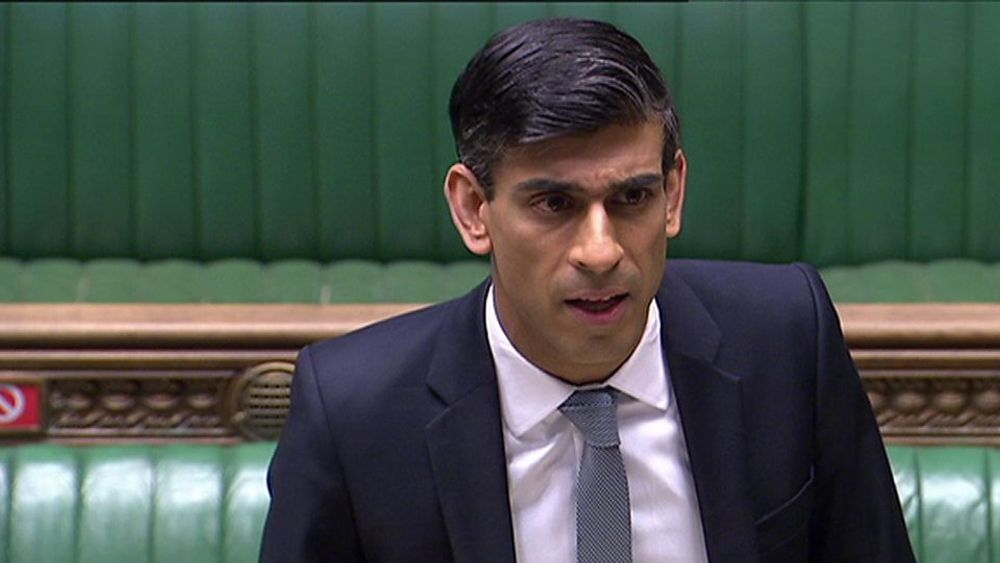
The WSTA is calling on Chancellor Rishi Sunak to do what he can in the autumn Budget to help drinks businesses recover from Covid-19 and not look to claw back Treasury money with duty rises
Before then there is the not so small matter of the Budget, which in normal yeas would take central stage. Beale says the WSTA is calling not just for a freeze but a drop in all alcohol duties as a much needed measure to help drinks businesses and its supply chain start to recover from the fallout of Covid-19. There is also the government review of calorie labelling on alcoholic drinks to think about too.
Beale has been bitten more than once when it comes to making duty predictions and cautions any call for a drop in duty with the reality that “taxes will rise, but we hope not yet”.
Simpler and fairer duty regime
Once the Budget is out of the way the WSTA will be doing all it can to work with the government on its forthcoming review of excise duty, which Beale described as a “once in lifetime opportunity” to address some of the challenges in the duty regime.
He hopes it will introduce a more level playing field all across drinks categories and get away with the huge discrepancies there currently are between how much duty is being paid on sparkling wine versus still, spirits versus cider and so on.
Ideally we will end up with a “simpler and fairer system for businesses and consumers” alike, he says. But he expects the review will see “fundamental changes”.
Beale also took the opportunity to try and get the wine and spirits industry to look way beyond January and address its own responsibilities when it comes to tackling some of the bigger environmental and sustainable challenges and how it can play its part by eliminating carbon by 2050.
Drinks industry needs to do more on carbon
He said the spotlight will always be on the drinks industry and how socially responsible it is being. It also needs to pay attention to changes in public opinion where it is not enough just to make claims about what steps you are taking to cut down on waste and your carbon emissions. For many that is now a given. They are no longer worthy of a virtual pat on the back.
Instead drinks companies, he said, need to be far more pro-active and focus their efforts on what they are doing outside of good sustainable behaviour in areas such as what are you doing for your local community and taking action outside their own sphere and in areas such as deforestation.
He explained:“In the past much of the CSR activity was about demonstrating absence of doing bad – reducing carbon footprint, energy efficiency, limiting water use – now the consumer is demanding evidence of doing good.”
He added: “The need to acknowledge that local problems are best tackled at local level is an important message, one rooted firmly in real world experience – and one we have made to UK government and to the WHO.”
Finally Beale turned his focus on the drinks industry and its collective efforts to force change for the better. He said it was vital that we all looked to pull together and have a “united leadership”.
“The WSTA is standing up for its members and our industry. We’re playing our part, but we need others to join us. Whether it’s shifting sands or structural change – we’re in this together. We need to stick together if we’re to survive, to recover and to thrive.”
- The WSTA Summit continues online today and tomorrow with two sessions a day – at 11am and 3.30pm. To find out more and to sign up click here.
